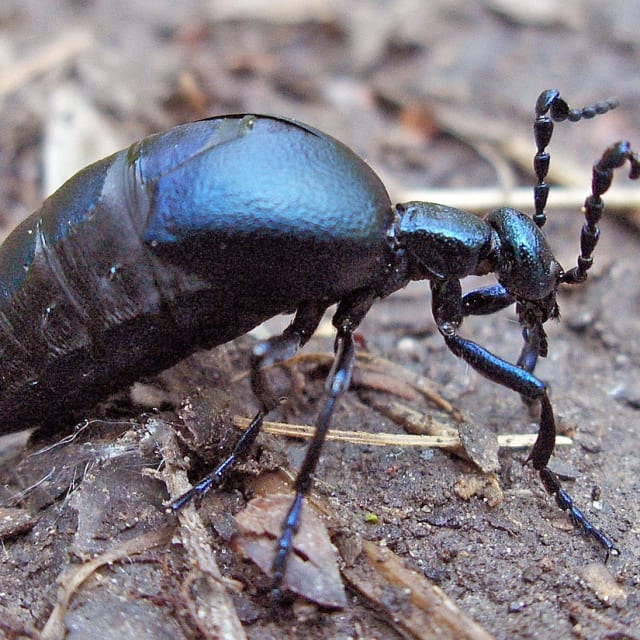Other Bugs' Bites
Check information about other bugs and learn if they bite or not and what you should do in case they bite.
Blister beetles do not bite or sting humans. They are not typically aggressive and prefer to play dead when threatened.
However, they can secrete a skin-blistering agent called cantharidin as a defense mechanism. This can cause blistering or irritation when it makes contact with the skin.
Blister beetles lack the physical ability to bite humans or other animals. They are not known to bite through clothing or any other barriers as they are physically incapable of doing so.
Their defense mechanism involves secreting a toxic substance known as cantharidin. However, this secretion can cause skin irritation or blisters when it comes into contact with a person's skin.

Blister beetles, including Meloe Proscarabaeus, do not bite or sting. They release a chemical called cantharidin when threatened, which can cause skin blistering on contact, but they do not inflict any physical biting pain.
No, Blister Beetles do not bite or sting. They release a toxic chemical called cantharidin as a defense mechanism.
Blister Beetles do not bite humans. If they are threatened or crushed, they can release cantharidin which can cause skin irritation.
Yes, contact with a Blister Beetle can be dangerous. Although they do not bite, the cantharidin they release can cause skin blistering and severe eye irritation.
If a Blister Beetle releases cantharidin on your skin, you may experience blistering, skin irritation, and pain. If it gets into your eyes, it can cause severe eye irritation.
Also check:
Check information about other bugs and learn if they bite or not and what you should do in case they bite.
Check the profile of Blister Beetle and learn more interesting information about them.